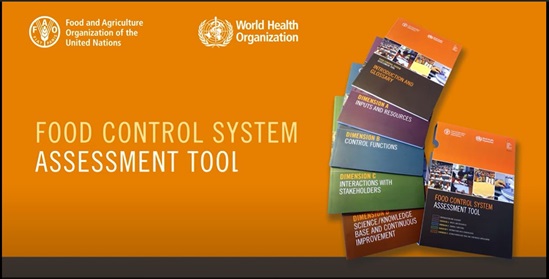Strengthening national food control systems
National food control systems play a pivotal role in protecting the health of consumers and ensuring fair practices in the food trade. Whatever the architecture of a national food control system, we must ensure that the system is effective in achieving its goals and that limited resources target the right priorities.
Measuring its performance allows us to know where we are, identify areas for improvement and target investments. Keeping track of progress is also a clear signal of transparency and accountability. This is the foundation for trust, which is key to building stakeholder confidence domestically and internationally, opening new markets and improving safe trade.
WHO published a Food Control System Assessment Tool jointly with FAO to help the responsible government authorities evaluate the adequacy of resources and the relevance of their control and surveillance systems over the national food control system. It also supports authorities in reviewing their interactions with stakeholders in the food chain.
Member States can assess their national food control system by implementing this tool. WHO also facilitate the implementation of the assessment tool by providing technical support and coordinating the process among multiple authorities of a national food control system.









